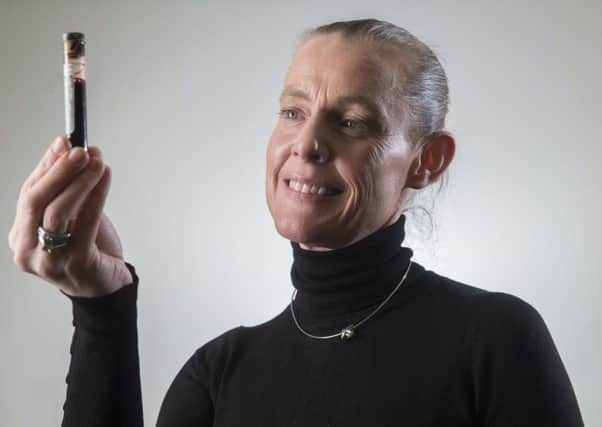Down’s Syndrome: Revolutionising prenatal testing


Michelle Day didn’t want to risk a possible miscarriage by having an invasive test to see if her baby had Down Syndrome.
Instead she decided to pay for a blood test (NIFTY) in Leeds, which at the moment is only available privately.
Advertisement
Hide AdAdvertisement
Hide Ad“We chose the NIFTY test as we wanted the most accurate test available that was risk-free and most importantly, safe for the baby,” explains Michelle, 35, a secretary from Leeds.
“We also wanted to know the sex of our baby and this test allowed us to have this information a lot earlier than the usual 20 week scan. The process was quick and easy, with just a simple blood test.”
Non-invasive prenatal testing like NIFTY can predict whether a baby has Down Syndrome as early as the 10th week of pregnancy. It also screens for the rare genetic conditions Edward’s Syndrome and Patau Syndrome.
This type of testing is currently only available in private hospitals, costing from around £300, but is now being considered for use on the NHS by the UK National Screening Committee.
Advertisement
Hide AdAdvertisement
Hide AdThe NIFTY test has been introduced for the first time in the UK by this is my:, a health screening and ultrasound service provider, which started from their first centre in Leeds.
This is my: has centres in Leeds, Halifax, Manchester, Hull, Liverpool and London. It has launched the NIFTY test which claims to have more than 99.9 per cent accuracy. The test, developed by BGI Health, could significantly reduce the number of women needing invasive testing, which can cause miscarriage.
The test works with a 10ml blood sample taken from the mother from as early as 10 weeks for quick detection and better clinical choices. The test detects free floating DNA from the unborn baby in the mother’s bloodstream using next generation sequencing technology. The test looks for evidence of chromosomal abnormalities that cause Down Syndrome and similar genetic disorders.
This is my: is led by two pre-eminent pioneers in their fields of feto maternal medicine – Gerald Mason, formerly consultant in feto maternal medicine at Leeds General Infirmary and executive member of the British Maternal and Foetal Medicine Society, and Professor Howard Cuckle, Adjunct Professor of Obstetrics and Gynecology, Columbia University, New York, USA and Emeritus Professor at the School of Medicine at the University of Leeds. Several of the best antenatal screening tests currently available have been developed by Professor Cuckle and his team.
Advertisement
Hide AdAdvertisement
Hide Ad“Many pregnant women are currently offered screening in early pregnancy to rule out chromosomal syndromes, called trisomies, among which the most common is Down Syndrome,” explains Mr Mason. “Those women who screen high risk with traditional combined screening are offered an amniocentesis or chorionic villus biopsy. Unfortunately these tests carry an approximate one per cent risk of miscarriage. Non-invasive prenatal tests such as NIFTY, are simple, safe and risk-free, giving expectant mothers the peace of mind that they have a healthy foetus. NIFTY has the potential to save many women from the agonising decision of whether to take the risk of going through a possibly unnecessary invasive procedure.”
Judith Pilling, managing director of this is my: and a clinical specialist, said: “NIFTY could very significantly reduce the number of invasive tests undertaken whilst giving early and safer detection should there be a problem.
“This is an exciting development and a major advance in obstetrics which we have long been waiting for. It provides highly accurate information to women so as to better manage their pregnancy.”
Professor Peter Soothill, consultant in foetal medicine at the University Hospitals Bristol NHS Foundation Trust and author of the scientific impact paper, said: “This is the most exciting development in pregnancy care in many years. The test is not yet available on the NHS but we think it will become a primary screening tool for all women who wish to know about foetal chromosomal abnormalities.”